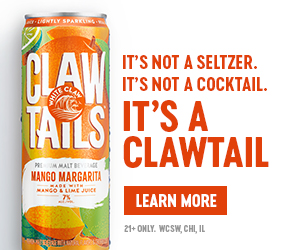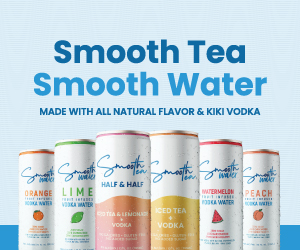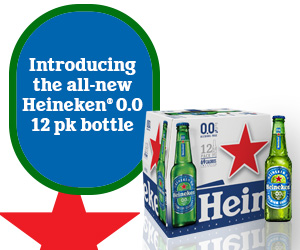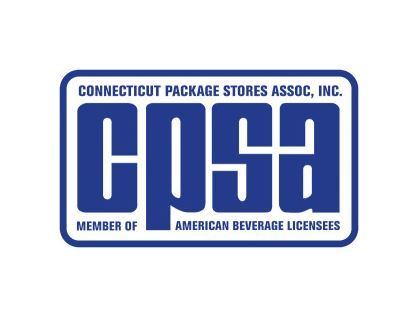

Sean Hughes, Account Director, Connecticut Package Stores Association.
By Sean Hughes, Connecticut Package Stores Association
At midnight on May 8, the 2024 legislative session ended, closing the door to passage of many of the hundreds of proposals raised throughout the year. Among the failed proposals were the push for beer sales in box stores, a municipal allowance to ban the sale of nips and a ban on the sale of THC-infused seltzers, all of which the Connecticut Package Stores Association (CPSA) worked diligently to oppose. However, of the limited bills that were approved by the state’s House and Senate, a few significantly impact the liquor industry.
Several stakeholders were involved in the passage of two bills, which further regulate the sale of hemp-based THC beverages. Although hemp-based THC products have been on the market for some time, due to a loophole in federal law, not many people were aware of them until Connecticut passed a law legalizing the use of recreational cannabis. Since then, the popularity of these products—especially of high-potency products being sold without regulation—grew to a point that could no longer be ignored by the legislature.
During the 2023 legislative session, lawmakers passed a bill that defined hemp-based THC, age-restricted its sale and broke products into categories based on potency. Package stores would be allowed to sell hemp-based THC seltzers to adults aged 21 and over if they contained 5mg or less of THC per container. Anything with a higher concentration of 5mg per container or a total .3% concentration of THC on a dry weight basis would be considered “high THC” products—and could only be sold by licensed cannabis dispensaries.
This year, lawmakers began the legislative session with the intent to restrict the sale of all hemp-based THC products to cannabis dispensaries, forcing all other retailers, including package stores, to remove such products from their shelves. A public hearing was held by the General Law Committee on the proposed restrictions, where many stakeholders from the industry shared informative testimony that was well-received by the legislature. Ultimately, legislators decided to restrict hemp-based THC beverage sales to both cannabis dispensaries and package stores, where the monitoring of age-restricted products is top priority.
Further limitations were placed on the sale of THC-infused seltzers, called “infused beverages” in the bill. Infused beverages may contain no greater than 3mg of hemp-based THC per container that is at least 12 fluid ounces. These seltzers cannot be sold in packages of more than four containers each. Despite the limitations, the passage of this bill is a huge win for the industry, considering the ban that was proposed at the open of the legislative session.
CPSA also fought against House Bill 5148—“An Act Concerning Grocery Store Beer Permittees”—which was raised in the General Law Committee and would have redefined “grocery store” to allow big-box stores like Target and Walmart to sell beer. CPSA and other representatives from the industry testified against the bill at the public hearing and spoke with legislators outside of the hearing room in the Legislative Office Building. CPSA and its industry partners were successful in killing the bill, which did not get out of the General Law Committee.
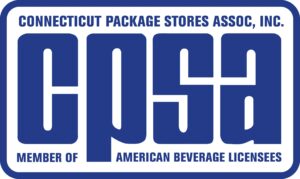 House Bill 5215—“An Act Concerning Municipal Authority to Prohibit the Sale of Nips”—which was raised in the Environment Committee, would have granted towns the option to ban the sale of nips within their borders. This proposal was introduced in response to concerned citizens citing the environmental impacts created by nips that are irresponsibly littered on roads or in waterways. Currently, Massachusetts has a statute in place that has been interpreted by towns as an allowance to ban the sale of nips. So far, six towns in the state have instated bans, which were mentioned in testimony in support of the bill. CPSA worked against this proposal and testified against it in the public hearing held by the Environment Committee, eventually blocking the bill from receiving a vote. The bill died in committee and was not raised in any other capacity before the end of the legislative session.
House Bill 5215—“An Act Concerning Municipal Authority to Prohibit the Sale of Nips”—which was raised in the Environment Committee, would have granted towns the option to ban the sale of nips within their borders. This proposal was introduced in response to concerned citizens citing the environmental impacts created by nips that are irresponsibly littered on roads or in waterways. Currently, Massachusetts has a statute in place that has been interpreted by towns as an allowance to ban the sale of nips. So far, six towns in the state have instated bans, which were mentioned in testimony in support of the bill. CPSA worked against this proposal and testified against it in the public hearing held by the Environment Committee, eventually blocking the bill from receiving a vote. The bill died in committee and was not raised in any other capacity before the end of the legislative session.
While the retail liquor industry had another successful legislative session in Connecticut this year, it was not the result of good luck. Every day, the CPSA team is actively lobbying legislators for or against any proposals that could impact the industry. The campaign to dismantle the current regulatory structure of the alcohol beverage industry in Connecticut is growing stronger every year.
Corporate giants are funneling more money than ever into hiring lobbying and public relations firms to finally convince legislators to hand your business over to them. What CPSA cannot match in funds we more than make up for in our relentless efforts to be a voice for independent retailers and the entire industry as it currently exists. However, these efforts cannot be sustained without support from our members. We offer sincere thanks to all our members who join and stay active in the fight to protect one of the last locally owned, thriving communities of independent business owners in Connecticut.
Find out more about any of these issues and the benefits of membership at ctpsa.com.


